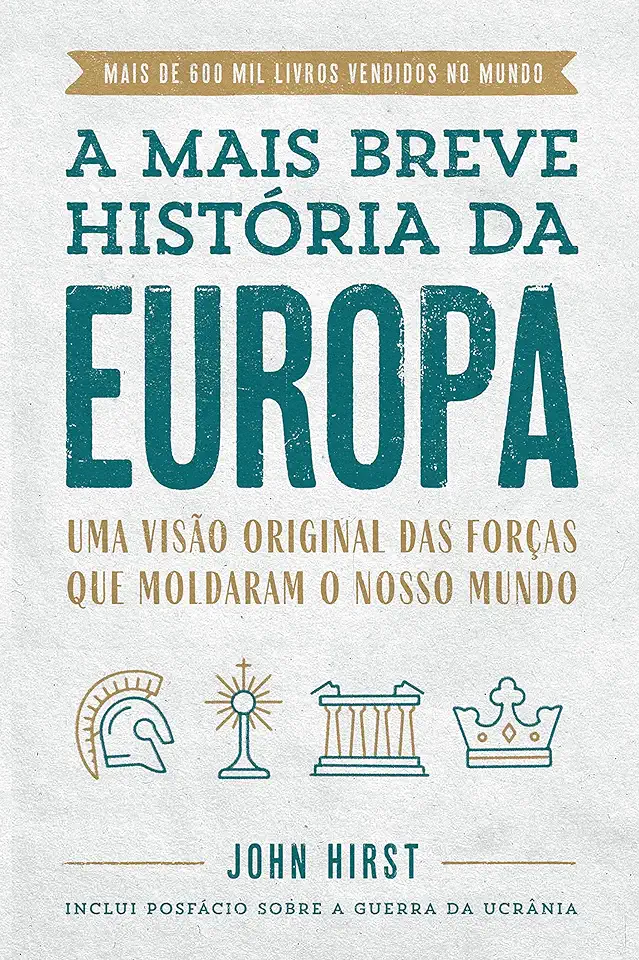
The Shortest History of Europe - Hirst, John
The Shortest History of Europe: A Comprehensive and Engaging Journey Through the Continent's Past
Introduction: Embark on an Epic Adventure Through Time
In "The Shortest History of Europe," renowned historian John Hirst takes readers on an exhilarating journey through the annals of European history, spanning centuries of captivating events, influential figures, and transformative ideas. This comprehensive and accessible book offers a unique perspective on the continent's rich tapestry, providing a deeper understanding of the forces that have shaped the world we live in today.
Chapter 1: Ancient Foundations: The Birth of European Civilization
The book begins by delving into the ancient roots of European civilization, exploring the rise and fall of mighty empires, the birth of democracy, and the spread of Christianity. Hirst vividly recreates the world of classical Greece and Rome, introducing readers to iconic figures such as Alexander the Great, Julius Caesar, and Constantine the Great.
Chapter 2: The Middle Ages: Faith, Feudalism, and the Crusades
The Middle Ages come alive in this chapter, as Hirst unravels the intricate web of feudalism, the power struggles between church and state, and the fervor of the Crusades. Readers will encounter legendary figures like Charlemagne, William the Conqueror, and Thomas Aquinas, gaining insights into the religious, political, and cultural forces that shaped medieval Europe.
Chapter 3: The Renaissance and Reformation: A Time of Transformation
The book then transports readers to the vibrant era of the Renaissance and Reformation, a period of intellectual and artistic awakening. Hirst explores the rise of humanism, the birth of modern science, and the religious upheaval that divided Europe. The lives and works of luminaries such as Leonardo da Vinci, Martin Luther, and Elizabeth I are brought to life, shedding light on a transformative era that laid the groundwork for the modern world.
Chapter 4: The Age of Enlightenment and Revolution: Reason, Liberty, and the Pursuit of Happiness
The Enlightenment and subsequent revolutions take center stage in this chapter, as Hirst examines the spread of rational thought, the quest for individual liberty, and the struggle for democratic ideals. Readers will delve into the ideas of Voltaire, Rousseau, and Jefferson, witnessing the birth of the United States and the French Revolution, events that reverberated across the globe.
Chapter 5: The Industrial Revolution and the Rise of Modern Europe
The book then explores the transformative impact of the Industrial Revolution, which ushered in an era of unprecedented technological advancement and economic growth. Hirst delves into the social, economic, and political consequences of industrialization, highlighting the rise of capitalism, the growth of cities, and the emergence of new social classes.
Chapter 6: The World Wars and the Cold War: Conflict, Catastrophe, and Resilience
The 20th century is brought into sharp focus in this chapter, as Hirst examines the cataclysmic events of the World Wars and the subsequent Cold War. Readers will confront the horrors of trench warfare, the rise of fascism, and the ideological struggle between communism and capitalism. The book sheds light on the resilience of the human spirit in the face of adversity and the enduring impact of these conflicts on the global stage.
Chapter 7: Europe in the Modern Era: Integration, Globalization, and the Future
The final chapter brings readers up to the present day, exploring the process of European integration, the challenges of globalization, and the uncertain future of the continent. Hirst examines the rise of the European Union, the impact of immigration, and the ongoing quest for unity and identity in a rapidly changing world.
Conclusion: A Legacy of Triumphs and Tribulations
"The Shortest History of Europe" concludes with a thought-provoking reflection on the continent's enduring legacy. Hirst invites readers to consider the lessons learned from the past and the challenges that lie ahead, encouraging a deeper understanding of the forces that have shaped Europe and the world.
Why You Should Read This Book
"The Shortest History of Europe" is a must-read for anyone seeking a comprehensive and engaging introduction to European history. John Hirst's masterful storytelling and insightful analysis make this book an indispensable resource for students, history enthusiasts, and anyone curious about the roots of our modern world.
Purchase Your Copy Today and Embark on an Unforgettable Journey Through Time!
Enjoyed the summary? Discover all the details and take your reading to the next level — [click here to view the book on Amazon!]